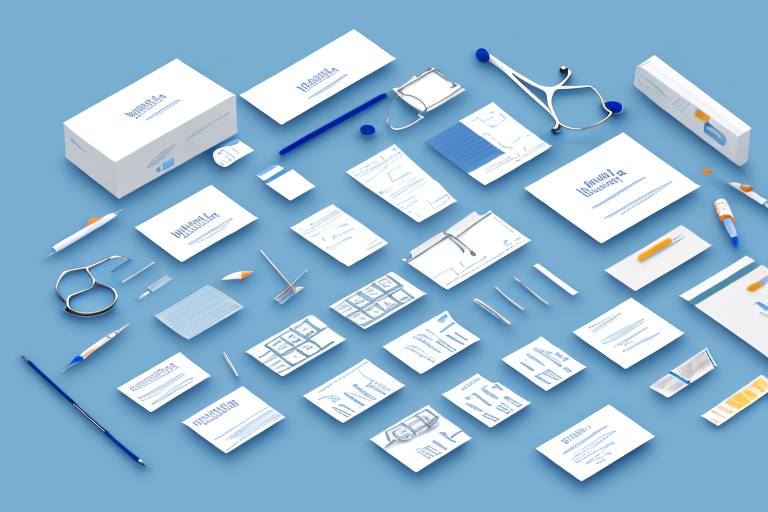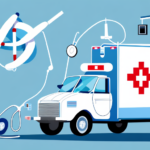What is a Medical Courier and Their Role in Healthcare
Medical couriers are essential professionals responsible for transporting medical equipment, laboratory specimens, and supplies between healthcare facilities, laboratories, and patients' homes. Their role ensures that critical medical items are delivered promptly and securely, maintaining the integrity and functionality of healthcare operations.
In the healthcare industry, timely delivery of medical supplies and specimens is crucial. According to a Health IT report, delays in medical deliveries can significantly impact patient care and treatment outcomes.
Educational and Certification Requirements
Educational Requirements
While there is no mandatory formal education required to become a medical courier, most employers prefer candidates with a high school diploma or GED. Some organizations may also value completion of a medical courier training program.
Strong communication and organizational skills are highly sought after, as couriers often coordinate with medical staff to ensure timely deliveries of sensitive materials.
Certification and Licensing
Depending on the region and employer, a Commercial Driver's License (CDL) may be required to operate larger vehicles. Additionally, certification in hazardous materials handling, such as the OSHA HAZWOPER certification, can enhance employability.
Background checks and drug screenings are standard procedures to ensure the safety and security of transported medical materials.
Essential Skills and Qualities
Communication and Customer Service
Medical couriers must interact professionally with clients and patients, requiring excellent verbal and written communication skills.
Attention to Detail
Handling sensitive medical equipment and specimens demands meticulous attention to detail to prevent errors and ensure the safe delivery of items.
Time Management and Adaptability
Couriers often work under tight schedules and must adapt to unexpected delays or changes in delivery routes. Effective time management is crucial to meet delivery deadlines.
Technology and Modern Practices
Utilization of Advanced Tools
Modern medical couriers leverage technology such as GPS systems, barcode scanners, and electronic signature devices to track deliveries and manage inventory efficiently.
Real-time tracking allows healthcare facilities to monitor the status of deliveries, enhancing transparency and reliability.
Route Optimization
Route planning software helps couriers identify the most efficient paths, reducing delivery times and fuel consumption. This not only improves operational efficiency but also contributes to environmental sustainability.
Safety Protocols and Regulatory Compliance
Adherence to Safety Standards
Medical couriers must follow strict safety protocols to maintain the integrity of medical specimens and equipment. This includes proper labeling, packaging, and temperature control for sensitive items.
Compliance with HIPAA regulations is mandatory to ensure the confidentiality and secure handling of patient information.
Regulatory Requirements
Couriers must comply with regulations set by the Department of Transportation (DOT) for the safe transport of hazardous materials. Failure to adhere to these regulations can result in significant legal consequences.
Career Opportunities and Business Ventures
Advancement Paths
Starting as an entry-level courier, professionals can advance to roles such as logistics coordinator, transportation manager, or courier team leader with experience and additional training.
Opportunities also exist in specialized areas like medical supply chain management and healthcare logistics.
Starting Your Own Business
For those interested in entrepreneurship, starting a medical courier business involves obtaining necessary licenses, investing in appropriate vehicles and equipment, and establishing relationships with healthcare providers.
Building a strong online presence and leveraging digital marketing strategies are essential for attracting and retaining clients.
Challenges and Insights from Industry Professionals
Common Challenges
- Managing traffic and weather-related delays.
- Ensuring vehicle maintenance and reliability.
- Handling difficult customers and maintaining professionalism.
Overcoming these challenges requires resilience, problem-solving skills, and the ability to remain calm under pressure.
Industry Insights
In an exclusive interview with a seasoned medical courier, it was highlighted that the rise of telemedicine and remote patient monitoring is increasing the demand for reliable courier services. Staying updated with the latest technology and industry trends is essential for maintaining competitiveness.
Professionals emphasized the importance of continuous learning and adapting to evolving healthcare needs to ensure long-term success in the field.
Conclusion
Becoming a medical courier requires a blend of necessary certifications, essential skills, and a commitment to maintaining high safety and regulatory standards. Whether pursuing opportunities within existing organizations or venturing into entrepreneurship, understanding the multifaceted demands of the role is key to thriving in the medical courier industry.
With the ongoing advancements in healthcare and technology, the role of medical couriers is more critical than ever, offering promising career prospects and opportunities for growth.




















